Muhammad Izzatullah
Posterior sampling with CNN-based, Plug-and-Play regularization with applications to Post-Stack Seismic Inversion
Dec 30, 2022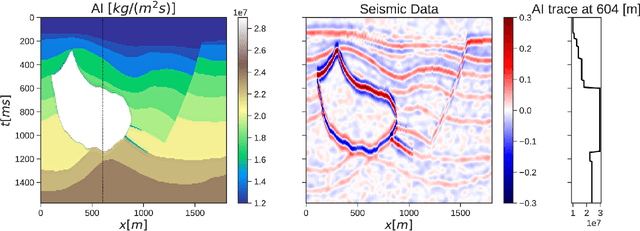
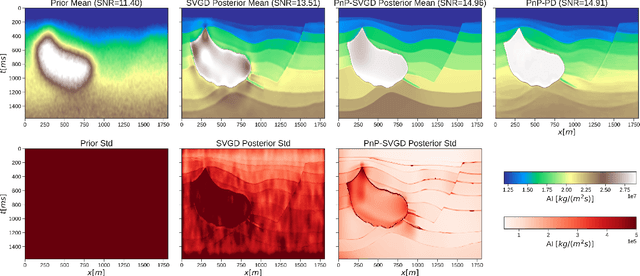
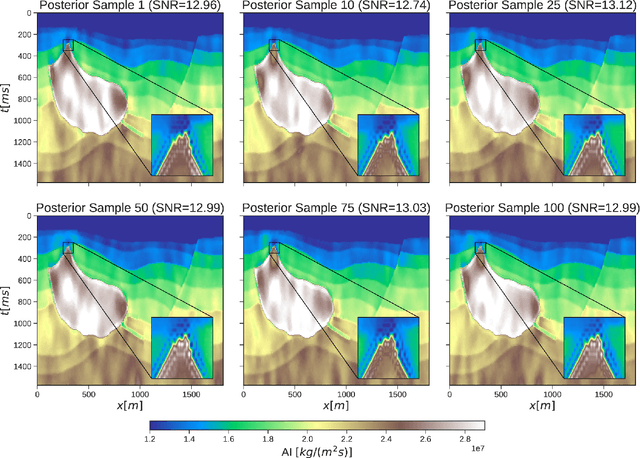
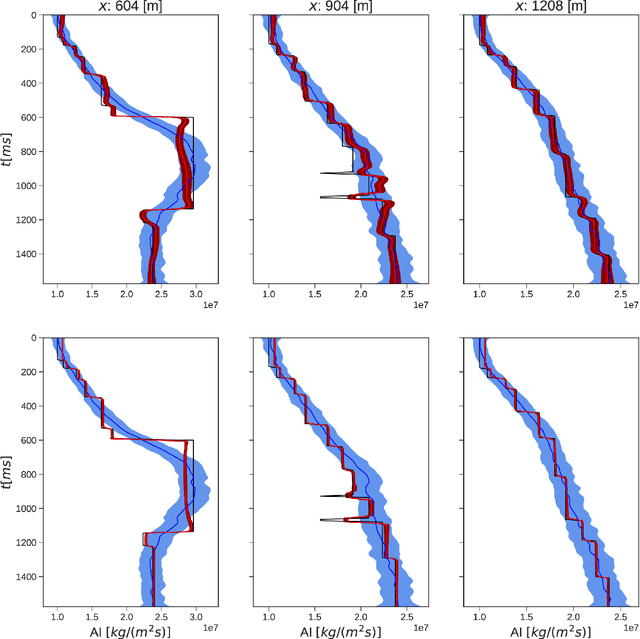
Abstract:Uncertainty quantification is crucial to inverse problems, as it could provide decision-makers with valuable information about the inversion results. For example, seismic inversion is a notoriously ill-posed inverse problem due to the band-limited and noisy nature of seismic data. It is therefore of paramount importance to quantify the uncertainties associated to the inversion process to ease the subsequent interpretation and decision making processes. Within this framework of reference, sampling from a target posterior provides a fundamental approach to quantifying the uncertainty in seismic inversion. However, selecting appropriate prior information in a probabilistic inversion is crucial, yet non-trivial, as it influences the ability of a sampling-based inference in providing geological realism in the posterior samples. To overcome such limitations, we present a regularized variational inference framework that performs posterior inference by implicitly regularizing the Kullback-Leibler divergence loss with a CNN-based denoiser by means of the Plug-and-Play methods. We call this new algorithm Plug-and-Play Stein Variational Gradient Descent (PnP-SVGD) and demonstrate its ability in producing high-resolution, trustworthy samples representative of the subsurface structures, which we argue could be used for post-inference tasks such as reservoir modelling and history matching. To validate the proposed method, numerical tests are performed on both synthetic and field post-stack seismic data.
Laplace HypoPINN: Physics-Informed Neural Network for hypocenter localization and its predictive uncertainty
May 28, 2022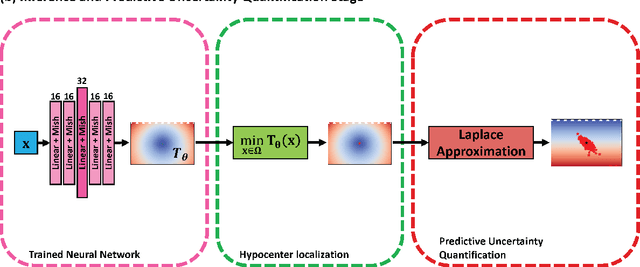
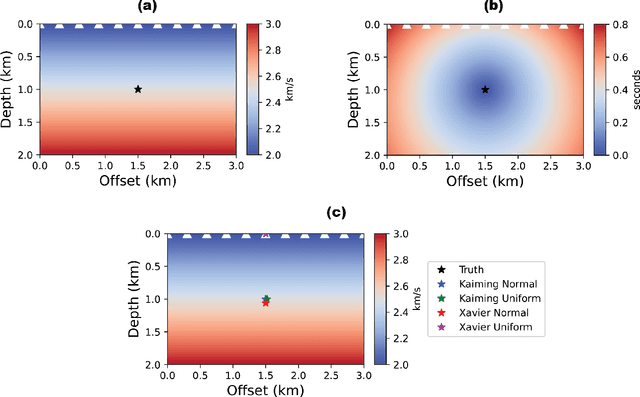
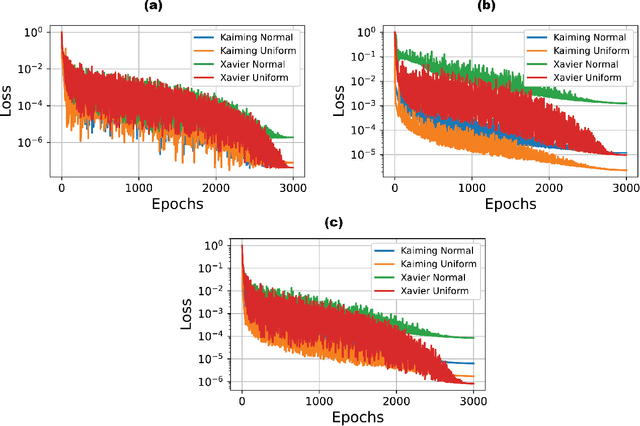
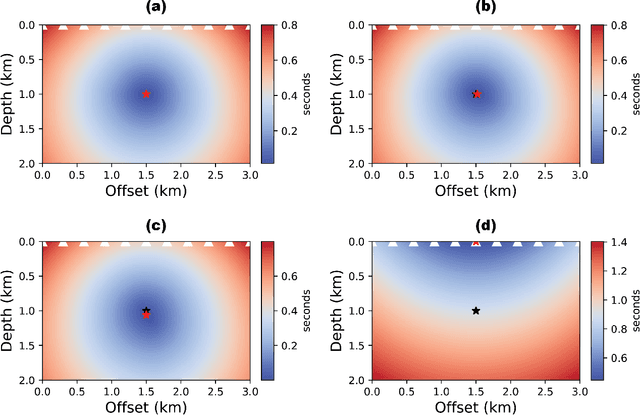
Abstract:Several techniques have been proposed over the years for automatic hypocenter localization. While those techniques have pros and cons that trade-off computational efficiency and the susceptibility of getting trapped in local minima, an alternate approach is needed that allows robust localization performance and holds the potential to make the elusive goal of real-time microseismic monitoring possible. Physics-informed neural networks (PINNs) have appeared on the scene as a flexible and versatile framework for solving partial differential equations (PDEs) along with the associated initial or boundary conditions. We develop HypoPINN -- a PINN-based inversion framework for hypocenter localization and introduce an approximate Bayesian framework for estimating its predictive uncertainties. This work focuses on predicting the hypocenter locations using HypoPINN and investigates the propagation of uncertainties from the random realizations of HypoPINN's weights and biases using the Laplace approximation. We train HypoPINN to obtain the optimized weights for predicting hypocenter location. Next, we approximate the covariance matrix at the optimized HypoPINN's weights for posterior sampling with the Laplace approximation. The posterior samples represent various realizations of HypoPINN's weights. Finally, we predict the locations of the hypocenter associated with those weights' realizations to investigate the uncertainty propagation that comes from those realisations. We demonstrate the features of this methodology through several numerical examples, including using the Otway velocity model based on the Otway project in Australia.
 Add to Chrome
Add to Chrome Add to Firefox
Add to Firefox Add to Edge
Add to Edge